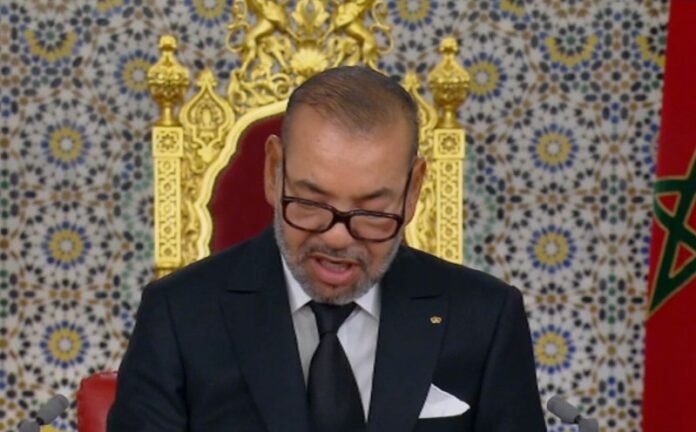In a nationally charged moment full of aspirations and amid a delicate context bursting with social and economic expectations, the Royal Speech on the 26th anniversary of the enthronement clearly announced a shift toward a new generation of territorial development programs, while opening the door to political consultations ahead of upcoming electoral milestones.
This was no ordinary speech: Moroccans waited for it eagerly, given the economic transformations, territorial challenges, and rising social expectations. It came at a moment of collective reflection, following accumulated tensions across various sectors—including sports, whose total absence from the speech prompted questions in media and sporting circles, especially amid ongoing debate over the national performance at international forums.
From Traditional Approaches to Integrated Territorial Development
The speech made it clear that the moment calls for a genuine shift in addressing spatial and social disparities, moving beyond classic social development models toward an integrated territorial development approach. This notable shift reflects awareness of the necessity to adapt public policies to the realities of local territories and break from the logic of “centralized plans” often developed detached from local specifics and capacities.
The emphasis on territorial development comes in a national context marked by stark inequalities between central and peripheral regions in terms of basic services, employment opportunities, and infrastructure—explaining the speech’s call to value local specificities, reinforce advanced regionalization, and uphold territorial solidarity.
Reordering National Priorities… with Notable Absence of Sports at This Stage
The Royal Speech framed Morocco’s social and economic development priorities, focusing on essential citizen concerns: employment, education, health, and water. These files constitute the pillars of a balanced development project.
However, some sports observers noted that the national sports sector was not mentioned at all, despite notable participation in international events—especially amid criticism of modest results in certain individual disciplines at the Paris Olympic Games. This “absence”—read cautiously—may signal the need for a comprehensive and global assessment before setting new strategic directions.
Such a pause could constitute an opportunity for deep revision of sports governance based on an objective, measured diagnosis of overall performance, independent of momentary pressure or fleeting results. The national sport sector remains, by virtue of its symbolism and achievements, a vital channel for youth development and the consolidation of civic values, and its inclusion in future integrated development agendas is beyond doubt.
Opening Electoral Consultations… Anticipating the Upcoming Mandates
The speech also issued clear directives to the government—especially the Interior Ministry—to proactively commence political consultations in preparation for the upcoming legislative elections, stressing the need for a legal framework in place before year’s end. This is a strong signal in favor of upholding constitutional timelines and reinforcing confidence in the national democratic process, free from mood-driven delays.
Behind the Speech… Questions and Challenges
Though the speech outlined its priorities with clarity, it also raises important strategic questions:
-
How will these new territorial programs be implemented? Who ensures coordination around “clear priorities,” avoiding dispersion and overlap?
-
What fate awaits regions that have yet to develop effective economic dynamics? Will the state support them with structured projects?
-
Are we witnessing an implicit realignment of the state’s strategic priorities? Does the absence of sports in the speech mark a deliberate stance—or is it simply a temporary postponement?
In Conclusion
The Royal Speech redirects the compass toward “territory” as a development field and “elections” as an avenue for democratic renewal. At the same time, it sparks reflection on policies that may no longer be prioritized or have not found a place in this strategic exercise. It is now the responsibility of leaders—in government, political parties, and civil society—to grasp those explicit and implicit messages, and act within a construction-oriented logic, rather than one driven by justification or resentment.


